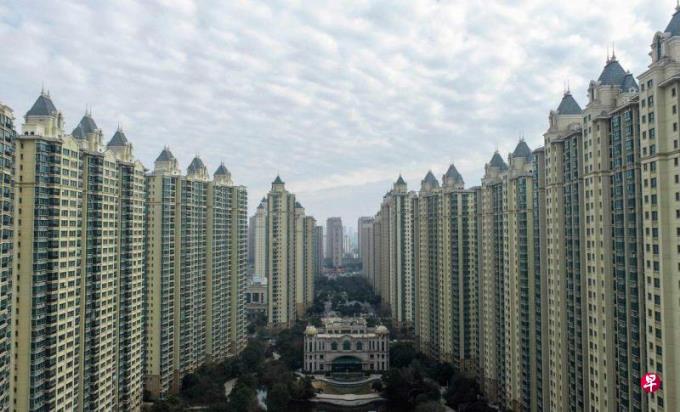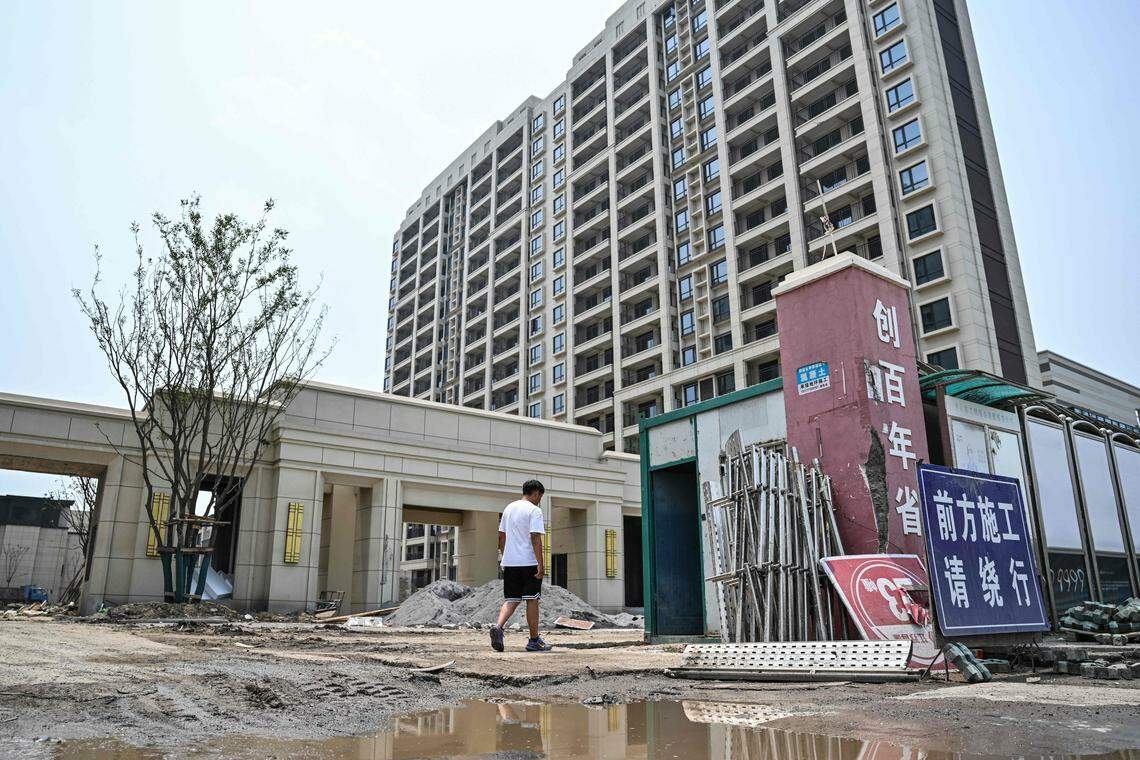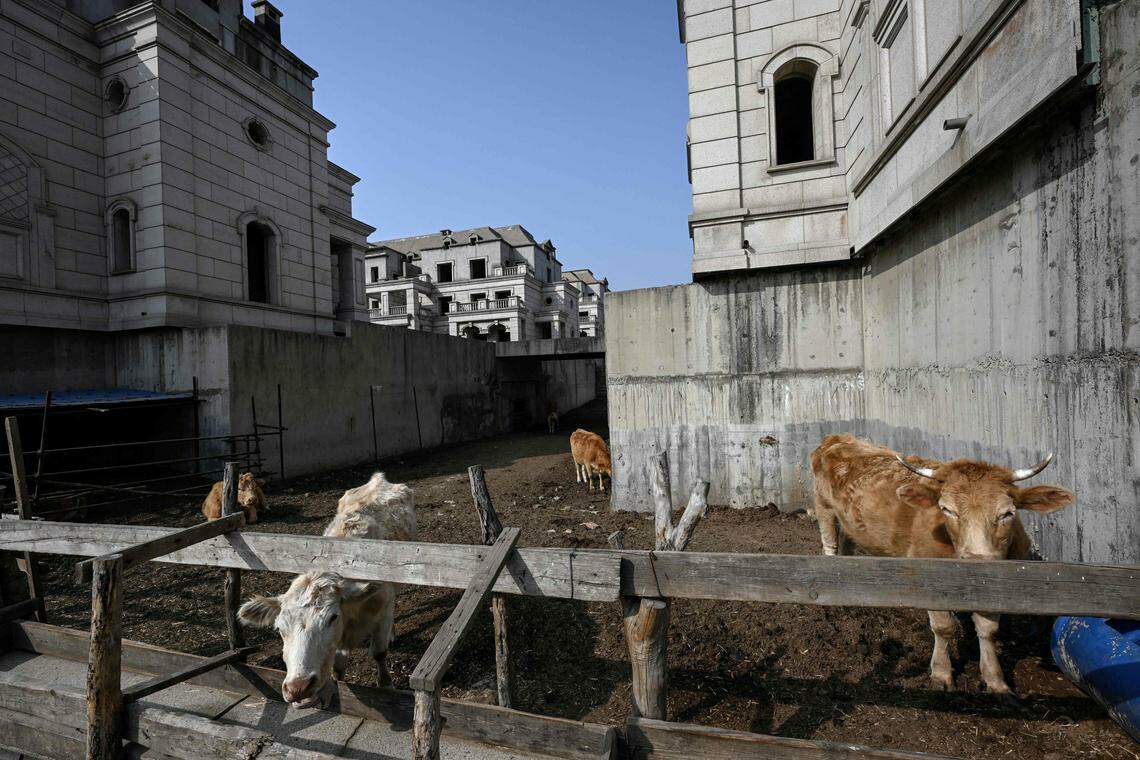
China's real estate market has been hit hard in the past two years, and the sluggish property market has also impacted the economy.Recently, various parts of China have been loosened and regulated, and policies such as "recognition of houses and not recognizing loans" have been introduced to reduce the threshold for buying housing and stimulate the sales of the property market.Can the Chinese real estate market usher in a transfer?Will the high -rise three -time emphasis on "housing do not fry" will exit?
Beijing resident Mr. Zhao (60 years old) has been a little troubled these days. He and his wife are struggling with whether they sell their own house now.
He has two houses in Beijing, one is located in the urban area of the Fourth Ring Road, and a set in Tongzhou District, the suburbs.Because the couple were nearing retirement, he decided to sell houses in the city in June this year, and retired to Tongzhou District to retire.
His house has been hung for more than two months at the price of more than 10 million yuan (RMB, the same, the same, about 1.86 million yuan).The bid did not reach his psychological price.
On September 1st, Beijing announced the implementation of the policy of "recognition of houses and not recognizing loans", and the number of people who visited the house in his home suddenly increased, and the bidding of two buyers had reached his psychological price, but he hesitatedstand up.
He said: "The intermediary is urging me to sell it quickly, but some media say that after the new policy is landing, Beijing's house prices may rise. We are worried that it is not appropriate to sell houses now. In case of this year'What? "
The sales manager of a real estate brokerage company in Beijing said that since the spring of this year, the second -hand housing market in Beijing has been relatively deserted, and house prices and transactions have decreased compared to the previous three months.After the new government policy was introduced in late August, the people who consulted the house increased significantly. There were more choices like Mr. Zhao. They might see if they had "gold nine silver ten".
"Golden Nine Silver Ten" will it come?
The Chinese real estate market is known as "Golden Nine Silver Ten", mainly because September to December is the critical period of sprints in the property market, especially in September and October is the peak sales season of the property market.
But in the past two years, well -known real estate developers such as Evergrande, Huaxia Happiness, Country Garden and other well -known real estate developers have been thundered. The Chinese real estate market has been severely damaged, and the property market has no previous scenery of "Golden Nine Silver Ten".
The downturn in the property market has a huge negative impact on the Chinese economy.On August 25 this year, the three departments such as the Ministry of Housing and Urban -Rural Development of China jointly issued a notice on optimizing the standards for the number of housing sets in individual housing loans to promote the implementation of policies and measures for the purchase of the first home loan to "recognize the house without recognition of loans".On August 31, the People's Bank of China and other departments announced that the interest rate of the first mortgage of the stock was also announced.
The so -called house recognition does not recognize loans, which means that no matter whether the buyer has had a loan, as long as there is no real estate in the current name, you can enjoy the down payment ratio and interest rate discount on the first mortgage loan.For many replacement groups, if you want to "sell one, buy one" to improve the housing before, you cannot enjoy the down payment ratio and interest rate discount of the first suite, and "do not recognize the loan" is a major benefit for them.
According to the current policy of Beijing, the down payment ratio of the first house (general house) of ordinary residential (general house) is not less than 35%, and the non -Pu house is not less than 40%.The house is not less than 80%.In terms of mortgage interest rates, the first home loan interest rate is 4.75%, and the two sets of mortgages are 5.25%.
Obviously, the policy of "recognizing houses and not recognizing loans" will incorporate more buying groups and demand for house purchase into the identification criteria for the first house, reducing the threshold for buying housing and stimulating the sales of the property market.
According to China News Network, Zhang Dawei, chief analyst of Central Plains Real Estate, believes that "non -recognition of houses" will bring a practical effect on families with replacement and improving housing needs.From the perspective of the second -hand housing market in Beijing in recent years, the demand for improvement has exceeded half."For the Beijing market, there will definitely be 'Golden Nine Silver Ten', and the transaction volume of second -hand housing is expected to rise quickly to 15,000 to 20,000 units.
In Shanghai, the transaction volume of second -hand housing in the second quarter of this year began to decline and accompanied the price down. The price of new houses fell slightly by 0.76%year -on -year.For four consecutive months, the second -hand house has been sold below the "Rongku Line" for four consecutive months.However, since the end of July, due to the fact that the policy is expected, the market activity of the second -hand housing in Shanghai has recovered, and the transaction volume of second -hand housing has also slowly recovered.
Yan Yuejin, the research director of the E -House Research Institute, believes that the current "Golden Nine Silver Ten" stage, the enthusiasm of Shanghai housing enterprises has increased significantly on the push market, and after the policy is clear, the willingness to enter the market is significantly enhanced, and the strategy of buying a house alsoClearer.In September, the Shanghai property market will be actively boosted, and the active transaction will continue, and there will be important performance in the fields of first -hand houses.
In fact, the official rushing to issue a new real estate policy before September, and it also has the intention of lifting up the "gold nine silver ten".Due to the stimulus of the new real estate policy, the real estate market in Beijing, Shanghai and other places does have the signs of "gold, nine silver ten".
According to the Beijing Youth Daily, after the New Deal landed, the number of first -realities developed by the construction of Beijing and the development of Beijing has increased significantly. Compared with the number of passenger flows of dozens of groups in the previous day, nearly two hundred groups have been visited recently.There are only two buildings.A queuing phenomenon also appeared in a building in a building in Fangshan District, Jingjiao.According to the project staff, the transaction volume exceeded 35 sets of transaction within 24 hours after the new policy of "recognizing the house", and the number of customers' visits on the first day of the new policy was almost doubled.
According to the China Securities Journal, Zhang Dawei introduced that on September 2, Beijing's second -hand housing sold 1,200 units, an increase of more than 100%compared to the previous Saturday; the new house transactions exceeded 1,800 units, and the entire August online visa was only 3100 online.set."Policy effect can be said to be immediate."
Shenzhen property market has also begun to pick up.According to Zeng Fan, a family agency in Futian District, Shenzhen, on September 2, the store where his store was located one day in three sets of second -hand houses.And six stores in his area, there were only five sets of transactions throughout August.
Multiple real estate in Shanghai also has a phenomenon of rising volume and more than 100 million yuan in real estate transactions.According to the data released by Poly Development and China Merchants Shekou, China Merchants Shekou exceeded 180 million yuan from September 2nd to 3rd.Yuan, another real estate turnover reached 110 million yuan.
On September 5th, 58 Anjuke released the China Anju Index report in August 2023 that the overall new houses in the 65 major cities in the country's key monitoring rose 6.1%month -on -month.Among them, the heat of new houses in first -tier cities rose 8.0%month -on -month, and new houses in new houses in second -tier cities rose 5.9%month -on -month. New houses in new houses in third- and fourth -tier cities rose 5.2%month -on -month.
58 Dean of Anjuke Research Institute Zhang Bo believes that the current policy relaxation represents the establishment of the bottom of the country. The release of a number of self -occupation needs through policies will undoubtedly help the rise of the popularity of first -tier cities and drive more cities across the country to get out of the sluggish market.Essence
Obviously, the official recently launched new real estate policies such as housing loan and "recognition of housing" and other new real estate policies, like injecting a dose of strong needle injection to the sluggish Chinese real estate market, may stimulate the property market, especially first- and second -tier cities, the property marketSales.
Premature real estate recovery
But if the Chinese real estate market will recover soon, I am afraid it is too early.
After 2020, the crown disease epidemic and continuous increase of epidemic prevention measures have a serious impact on the Chinese economy, and the real estate marketIt was also severely frustrated.In the past two years, Evergrande, Country Garden and other real estate developers have been in crisis, and have weakened the public's confidence in the property market.


Since the beginning of this year, the Chinese property market has faced large downward pressure.In the first seven months of this year, indicators such as real estate development investment, commercial housing sales area, and the capital of real estate companies have further expanded. Among them, the sales of commercial housing sales have been negatively increased in July since March this year.
The unable to sell commercial housing means that many real estate companies cannot receive a payment, it is difficult to repay the loan, and it is likely to fall into the financial crisis.
According to incomplete statistics, as of August 18, about 80 Chinese listed real estate companies disclosed the performance preview of the first half of 2023, of which more than 60 % of the housing companies lost money, and the total loss ranged from 1 billion to 55 billion yuan., Cumulative total loss exceeds 100 billion yuan.
In theList list, not only real estate companies such as Jinke, Shimao, and Huaxia Happiness, but also central enterprises, state -owned enterprises and mixed ownership enterprises such as Jinmao, Ocean, Overseas Chinese Town, Gree Real Estate, First Open Shares, Huayuan Real Estate, etc.
According to the data compiled by Bloomberg as of September 1, 34 of Chinese private companies developers in the top 50 of US dollar bond issuance have owed offshore debt.
China Real Estate News reported that the market pessimistic expectations are heating up in the strong stimulus policy of real estate.An insider of a housing company said that insurance real estate enterprises will basically not be radiated by policies. In addition to the downturn sales, it is also affected by the continuous deterioration of the refinancing environment.Regulatory management has always been verbally supported by the financing of housing enterprises, but at this stage, no financial institutions are willing to raise funds for out export enterprises that are urgently needed for funds. Without investment in new funds, it cannot guarantee that the corporate cash flow is cracking.
The recent report released by the National Finance and Development Labs shows that in the first half of this year, 25 real estate companies bonds were substantially defaulted to the contract because they did not pay the principal and interest or return funds and interest on time.The exhibition period of bonds is 115.84 billion yuan.In the second half of 2023, the debt pressure of most housing companies was still large, and the financing recovery and sales recovery were not as expected. The risk of breach of contract for housing companies was still severe. In the future, there may still be debt defaults in housing companies.
Deputy Text: "Do not fry the house" temporarily exit
In the past 20 years, China's real estate market has developed rapidly and has become one of the pillar industries of China's economic growth.At the same time, house prices are also rising rapidly.The surge in house prices has made various developers, house speculators, and the government gain great benefits, and has also turned many people into a heavy "house slave".High house prices have become one of the source of the grievances of Chinese society.

In recent years, China's senior management has often emphasized "housing does not fry", and local governments, especially first- and second -tier cities, have also introduced various purchase restrictions, loans and sales measures to try to curb the overheated real estate market to avoid excessive real estate bubbles.As a result, the financial crisis.
However, in recent months, the sluggish performance of the Chinese economy and the unemployment rate of the high level have forced high -level to come up with more powerful measures to stimulate economic growth.Although the official does not want to see the real estate overheating, the downturn in the property market will definitely affect a series of industry recovery and drag the entire economic growth rate. Even the official 5%economic growth goal this year is probably difficult to achieve.
The official launch of a series of strong stimulus measures such as "recognition of houses and not recognizing loans", which means that the loan restriction policy has begun to be lifted.
If the existing measures can not play the role of rescue, the official will continue to enlarge the moves, such as liberalizing purchase restrictions in first -tier and second -tier cities such as Beijing and Shanghai.If the real estate market continues to fall, not only the banks are facing financial risks, but the employment issues will be more troublesome.
Although the release of first -tier and second -tier cities may boost the local property market, it may also produce siphon effects, making the property market in the third and fourth tier cities colder, and the entire market is worse.Therefore, the New Deal may stimulate the property market in the short term, but it still needs to observe how the effect and whether the Chinese real estate market can recover.


